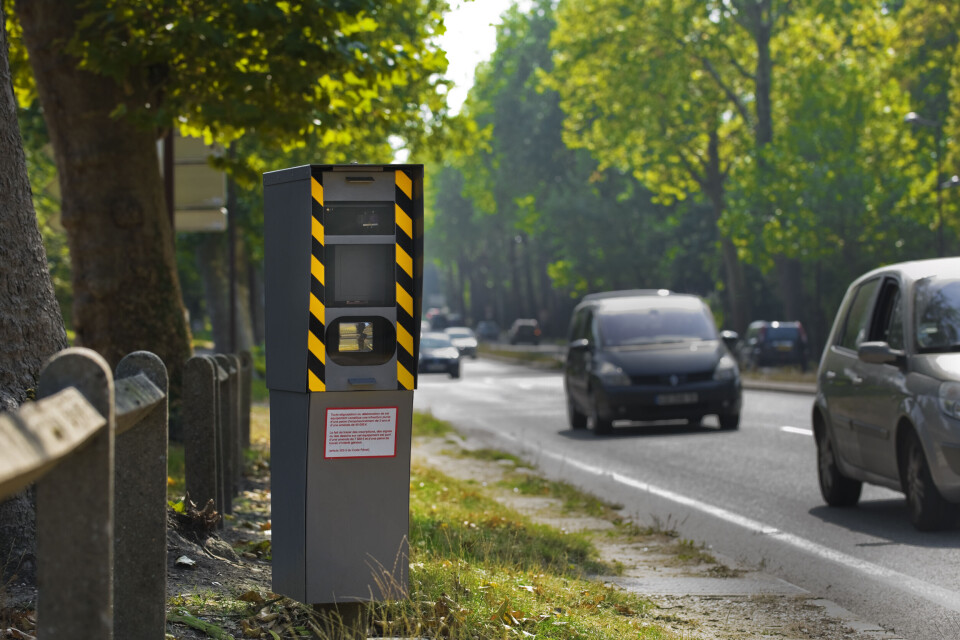-
Trump calls for Marine Le Pen to be freed (but she is not in prison)
US president said her embezzlement court case was a ‘witch hunt’
-
France’s €3 book delivery fee challenged in EU court by Amazon
Online retailer said measure is protectionist and ‘in breach of EU laws’
-
Allergies: How to know pollen levels in your commune of France
Interactive online maps can track and predict how pollen is changing in the air
We’ll resist a cut in motorway speed limit, say French car activists
Debates have resurfaced around reducing the speed limit on French motorways to 110km/h, which a leading drivers’ group says would be counterproductive when it comes to safety

A leading drivers’ group has warned it will resist any attempt to lower the motorway speed limit from 130km/h to 110km/h.
The debate has resurfaced after renowned climatologist Jean Jouzel called on the government to implement the measure which was initially proposed by the Citizens Convention for Climate in 2019-20.
It was rejected at that time as it was seen as too unpopular with the government wanting to avoid a repeat of the unrest caused by lowering the departmental road limit from 90km/h to 80km/h in 2018.
The then-transport minister Elisabeth Borne – now prime minister – said she was “personally” in favour of a motorway speed reduction but that it would need public support.
Read more: Should motorway speed limit be cut to 110km/h? Your feedback
Petition launched
The Ligue de Défense des Conducteurs has launched a petition rejecting any future lowering of the speed limit, which has gathered more than 273,000 signatures.
“We want to show that we are watching and will not let such a measure pass,” the association’s spokesperson Alexandra Legendre told The Connexion.
The government’s new energy-saving plan calls on public sector workers not to go over 110km/h when making work-related trips.
It says this will reduce fuel use by 20%.
Ms Legendre said: “We don’t need the government to tell us if you drive less fast you will make savings.
The treatment of drivers is based on infantilisation and punishment.”
Counterproductive to safety
In terms of safety, she believes lowering the speed limit would be counterproductive.
“The motorway network is by far the safest in France.
“People will wonder why they should pay the tolls if they cannot drive at 130km/h, so they will end up taking more dangerous secondary roads.”
In its petition, the association also warned that drivers could have their licences suspended for driving at 140km/h if the limit is lowered.
While this is possible, it would only happen in extreme cases.
Licences are suspended for driving 40km/h over the limit, but it is also a risk from 30km/h over the limit if you decide to contest the initial fine.
Record number of speed cameras
It was recently revealed that a record 5,600 speed cameras will be in place in France by the end of next year, although only 4,600 will be in operation.
This includes speed camera cars which are designed to blend into the traffic and are increasingly being delegated to private operators.
More than half (58%) of speeding fines are issued to people less than 5km/h over the authorised limit, which includes a margin of error. Ms Legendre believes this is an injustice.
“We need to stop associating safety with just speed.
We are also in favour of strengthening punishments for drink-driving, for example.”
An Ipsos survey, ordered by the Agir pour l’Environnement association and published this summer, found that 63% of French people would be prepared to reduce their speed by 20km/h on the motorway to save money on fuel.
Related articles
Speed limits switch back to 90km/h on more French roads
Semi-autonomous cars now permitted on some French roads
MAP: The French departments where roads have 90km/h speed limits
























